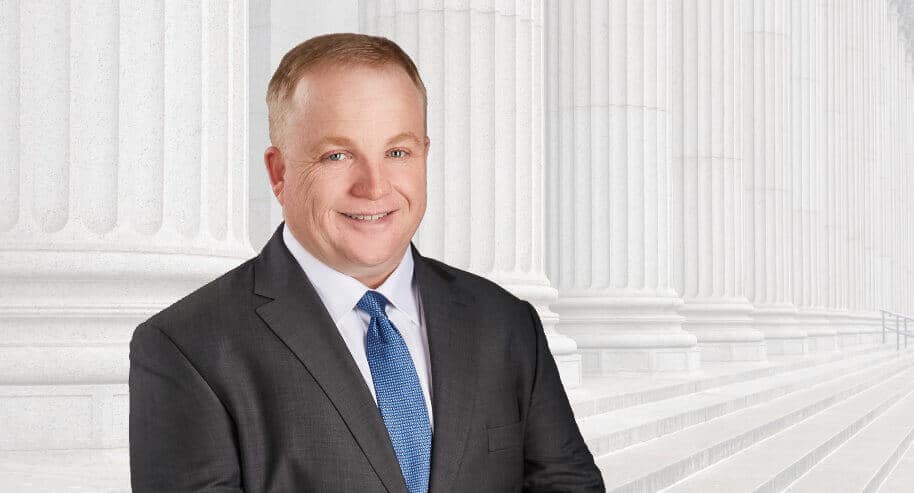
It’s important to take care of your loved ones, but there’s only so much you can do if you lack the legal right to make decisions. Guardianship gives you legal permission to act on a person’s behalf. And if your relative needs someone to step in, guardianship might be the right thing to do.
Guardianship is a legal relationship that courts oversee to ensure no one takes advantage of a vulnerable individual. Whether you live in Johnston County or Wake County, if you believe obtaining guardianship over a minor or incompetent adult is the right decision, talk with a guardianship lawyer in Garner, NC, about the process.
Garner family lawyer Jonathan Breeden has decades of experience helping clients secure the necessary rights to care for others. Call Breeden Law Office at (919) 661-4970 to schedule a consultation.
Through guardianship, someone – the guardian – gains court approval to act on someone else’s – the ward’s – behalf. That right may be for all or some crucial decisions.
General Statutes § 35A outlines the guardianship roles:
North Carolina law allows three kinds of legal guardianship:
Guardians are usually individuals, but the state allows businesses sometimes, too. For example, a financial adviser might better serve a ward with significant property or investments. Or, in some cases, a medical professional can be a guardian with court approval.
The state has strict rules and a high standard for guardians.
As a personal guardian, you may need to:
As an estate guardian, you have to:
If you become a general guardian, you’re responsible for all of these tasks.
There are several situations in which guardianship becomes appropriate:
Becoming a guardian in Garner requires court approval. Generally, courts will only appoint you as a general guardian over a child if their parents are deceased or their rights have been terminated. Another possibility is if a child’s parents are incarcerated or nowhere to be found.
Guardianship is not always permanent. If you become a minor’s guardian, it ends when they turn 18. If they are incompetent, you’ll have to ask for guardianship again.
If you become an incompetent adult’s guardian, that adult can have their rights restored when they’re no longer incapacitated.
If you think guardianship is the right course of action, talk with a qualified Garner guardianship attorney. Jonathan Breeden will explain the proceedings and help you prepare.
If you’re looking to become the guardian of a minor, you don’t have to prove incompetency. However, if the potential ward is 18 years or older, then you have to prove they cannot decide for themselves.
Proving an adult is incompetent requires evidence like a physician’s testimony. You may need to establish the adult has a mental health condition, disease, or severe injury.
Others can challenge your petition for guardianship, including the potential ward and other family members.
In North Carolina, any interested person can file for guardianship. That includes family members, healthcare professionals, and social services agencies. But being an interested party isn’t enough. You have to prove the court should appoint you as guardian and not someone else.
The potential ward has a right to an attorney and guardian ad litem during the proceedings. They also have the right to disagree with a guardianship petition or advocate for a different guardian. The guardian ad litem acts as the court’s eyes and ears. Therefore, they may interview and observe the ward and other parties then report their findings.
Many guardianship proceedings run smoothly, like cases of parents gaining guardianship over a disabled child who turned 18 years old. However, proposed guardianships can be hotly contested.
Possible issues include:
The guardianship process can require official court appearances, hearings, motions, and even a trial. If you’re worried, have an experienced Garner guardianship lawyer help.
Guardianship proceedings in Garner are handled at District Court in either Johnston or Wake County. You may need to go to Raleigh to file paperwork and appear in court. Or you can work with a Garner guardianship attorney who can appear on your behalf.
Instead of relying on guardianship, you can have legal documents in place if you need to make decisions for a loved one or vice versa.
These documents are legally binding. If you plan to execute a power of attorney or estate planning documents, you should first talk with a Garner family lawyer.

When you need to take care of a loved one, you can’t let the legal process stand in your way. Breeden Law Office is here to help. We’ll explain the law and take you through the process step by step.
Attorney Jonathan Breeden has handled all types of guardianship situations. He understands families often find themselves in difficult situations and are simply doing the best they can. He offers compassion and understanding during this stressful time.
For more information on guardianship, contact us online or call (919) 661-4970.
Call Breeden Law Office today:
Call (919) 661-4970